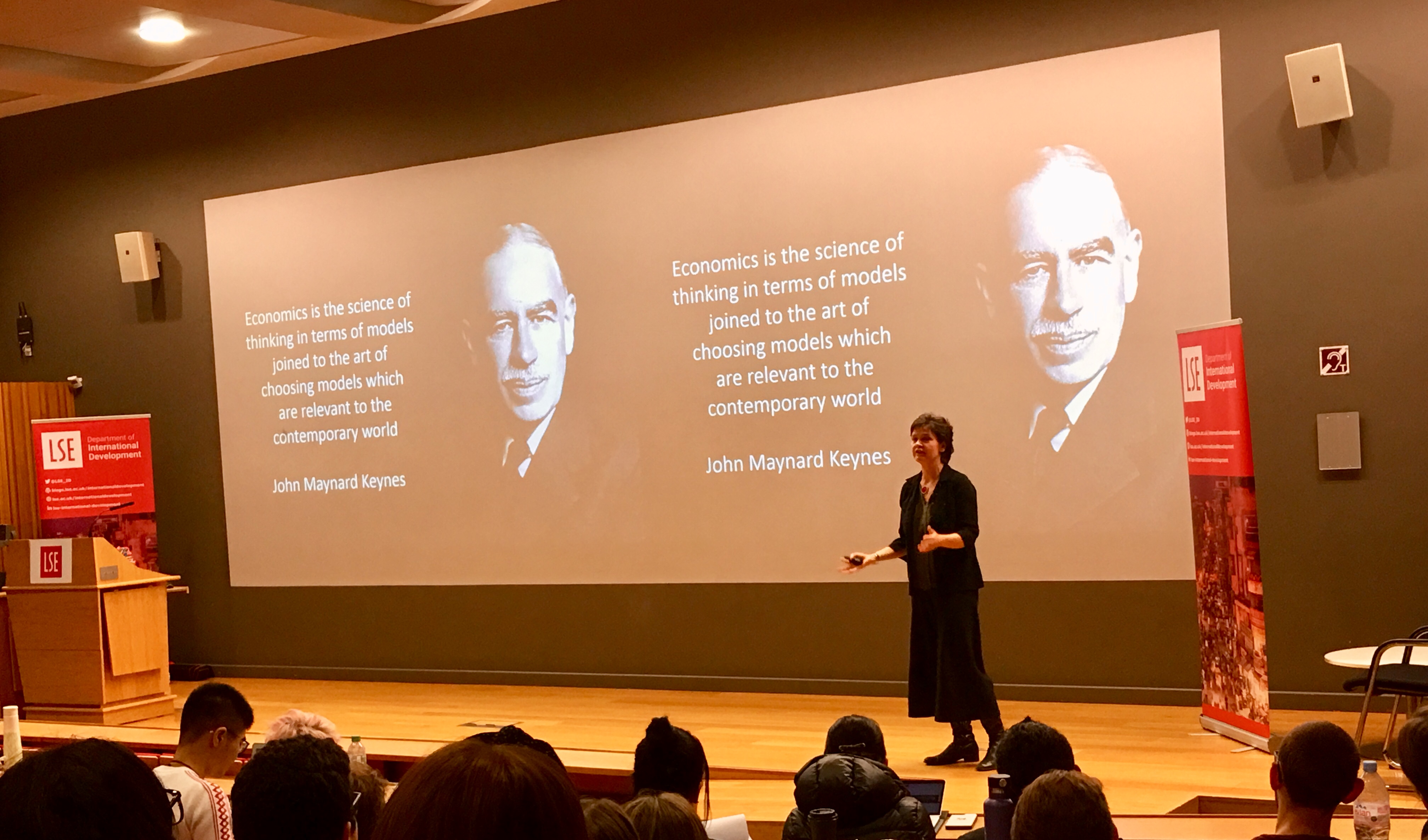
MOOCs are taking over. If you aren’t yet excited about Massive Open Online Courses, you should be.
When I was first getting interested in development the only way to bridge the gap between reading the news and coughing up squllions for a Masters was to cycle through the rain every Tuesday evening to London’s City Literary Institute to sit at the feet of Jenny Pearce and her course on Latin America (I ended up taking over from her, and writing a book based on the course). These days I could stay warm and dry, and listen online to development gurus from around the world. The numbers signing up are colossal – Jeff Sachs reportedly has 14 million students for his MOOC on sustainable development.
As often happens, the initial surge came in the US, but it’s crossing the Atlantic. Last week I spoke at the LSE at the launch of a MOOC on ‘citizen engagement’, put together by the World Bank, LSE, IDS, ODI, Harvard and Civicus (a sort of crowd-sourced MOOC – even more funky). We spoke a few days after the MOOC went live, by which time 14,000 people had signed up from all over the world.
 The discussion was pretty good and although no-one was against citizen engagement (CE), they were strikingly sceptical about the hype around it – no-one is drinking the participation-will-solve-everything koolaid any more. Some snapshots:
The discussion was pretty good and although no-one was against citizen engagement (CE), they were strikingly sceptical about the hype around it – no-one is drinking the participation-will-solve-everything koolaid any more. Some snapshots:
Everyone stole my lines on power, politics and conflict being an essential part of change and transitions to accountability. Linked to that was a clear distinction between using CE as a means of paradigm maintenance and ‘and enabling people to rock the boat’. Owen Barder warned that ‘we need to be careful with the idea that removing confrontation is a desirable outcome’. Duncan Edwards of IDS quoted Andrea Cornwall and John Gaventa’s great call for a move ‘From users and choosers to makers and shapers’ (here’s his take on the meeting).
Healthy scepticism on the impact of donors on CE: the risks of ‘death by consultation’ that changes nothing, ‘facipulation’ and creating Astroturf organizations (they look like grassroots, but are actually synthetic creations hoovering up aid dollars).
The dreaded ‘toolkit temptation’ whereby perfectly good, innovative and adaptive ideas are reduced to one more box to tick.
Vanessa Herringshaw of Transparency and Accountability Initiative pointed to the hypocrisy of dozens of governments that mouth the platitudes on engaging citizens, while at the same time cracking down on civil society space.
There was a healthy degree of scepticism about the game-changing potential of IT, not least because its use is often individualised rather than collective – can it be turned round to promote ‘connective action’ that brings people together and builds ‘power with’?
 Some wise words on the dangers of CE fundamentalism: ‘It would be catastrophic if every form of engagement led to an outcome’ (Fredrik Galtung of Integrity Action). ‘The purpose of government is to reconcile competing interests. They make people do things that they don’t want to do for some greater good. The goal of CE is not to ensure that everyone gets what they want all the time, but to change the power relationship to some fairer form of reconciliation of competing claims.’ (Owen Barder at his magisterial best).
Some wise words on the dangers of CE fundamentalism: ‘It would be catastrophic if every form of engagement led to an outcome’ (Fredrik Galtung of Integrity Action). ‘The purpose of government is to reconcile competing interests. They make people do things that they don’t want to do for some greater good. The goal of CE is not to ensure that everyone gets what they want all the time, but to change the power relationship to some fairer form of reconciliation of competing claims.’ (Owen Barder at his magisterial best).
Beware short cuts: Owen Barder again (he stole the show a bit): ‘Social contracts cannot be brought about by a series of fixes (CE, but also reforms to tax, property rights, democracy, legal system). They emerge from the evolution of institutions, and that can’t be bypassed or short cut. Our role (as outsiders, aid agencies etc) is to accelerate evolution, thinking less like Dr Frankenstein sticking body parts together, and more like a plant breeder speeding up the variation, selection and amplification of new strains (presume he was referring to traditional plant breeding, rather than GM…..).
Voice is not the same as accountability: one speaker memorably argued that China has lots of accountability and no voice; India the opposite.
As for the MOOC, I would love to hear from anyone taking it. One interesting aspect of now being on staff at the LSE is that I get to see some of the tensions between Open Access and traditional academic culture – a spirited internal email exchange about whether MOOCs will undermine academic standards and more practically, a refusal from the techies to webstream the launch event because they hadn’t got sufficient layers of sign off. Quite funny really.
And at Oxfam we are busily discussing a MOOC to accompany the How Change Happens book, but I think it could go much wider than that. We’re sitting on a pile of internal training materials that would be relatively painless to turn into MOOCs – Oxfam University anyone?
If you’re an acronym junkie, MOOC is just the start. There are fee-charging SPOCs (small private online courses) and (I learned at the event) even SNOCs (small network online courses). I think at this point you can just start making them up and see if they stick.
And here’s a 3m video ad for the course (if you don’t want to join it because it’s already started, don’t worry, there’ll be another one along in a few months)…
Dr Duncan Green is strategic adviser at Oxfam UK and Professor in Practice at the Department of International Development at LSE. This post originally featured on Duncan’s From Poverty To Power blog. You can also follow him on Twitter at @fp2p.






1 Comments